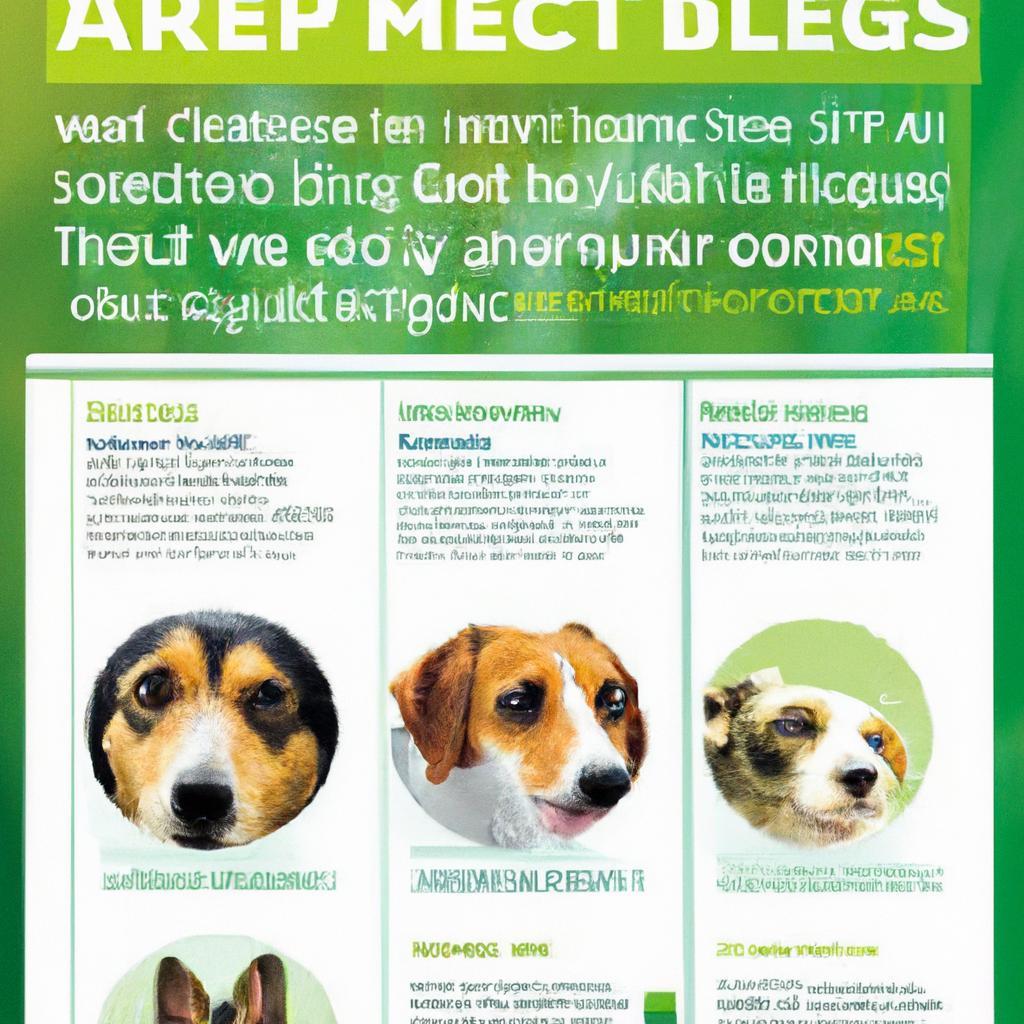When Sarah first dreamed of having a dog, her heart sank at the thought of her allergies. But one day, she met a hypoallergenic breed at a local shelter. Intrigued, she learned that these dogs produce fewer allergens, making them a viable option for allergy sufferers. After a few visits and careful consideration, she adopted a spirited little poodle. Now, Sarah enjoys the companionship she longed for, all while managing her allergies. If you’ve ever wondered, “Can I get a dog if I’m allergic?” the answer might just be a resounding yes!
Contents
- Understanding Allergies and Dog Breeds Suitable for Sensitive Individuals
- Effective Strategies for Minimizing Allergic Reactions in Dog Owners
- The Role of Hypoallergenic Dogs: Myths and Realities
- Creating an Allergy-Friendly Home Environment for Your New Pet
- Q&A
Understanding Allergies and Dog Breeds Suitable for Sensitive Individuals
Allergies can be a significant concern for potential dog owners, but understanding the nature of these allergies is crucial in making an informed decision. Allergies to dogs are typically triggered by proteins found in dog saliva, skin, and urine. When these proteins are released into the environment, they can cause reactions in sensitive individuals. It’s essential to recognize that no dog breed is entirely hypoallergenic; however, some breeds are known to produce fewer allergens and may be more suitable for those with sensitivities.
When considering a dog for allergy sufferers, certain breeds stand out due to their unique coat types and lower shedding tendencies. These breeds often have hair that is more similar to human hair, which can help reduce the spread of allergens in the home. Some of the most recommended breeds include:
- Poodle – Available in standard, miniature, and toy sizes, Poodles have a curly coat that traps dander and hair.
- Bichon Frise – This breed has a soft, curly coat that requires regular grooming, which helps minimize allergens.
- Portuguese Water Dog – Known for their wavy coat, these dogs are energetic and friendly, making them great companions.
- Shih Tzu – With a long, flowing coat, Shih Tzus are known for their affectionate nature and lower shedding.
In addition to breed selection, it’s vital to implement strategies that can help manage allergens in your home. Regular grooming and bathing of your dog can significantly reduce the amount of dander and saliva present in your living space. Creating a designated pet-free zone, such as a bedroom, can also provide a safe haven for allergy sufferers. Furthermore, investing in high-quality air purifiers and maintaining a clean environment can help minimize allergen exposure.
Ultimately, the decision to bring a dog into your home should be made with careful consideration of your allergy sensitivities and lifestyle. Engaging with breeders or shelters that understand your needs can provide valuable insights and help you find a dog that fits your requirements. By choosing the right breed and implementing effective management strategies, you can enjoy the companionship of a dog while minimizing allergy-related issues.
Effective Strategies for Minimizing Allergic Reactions in Dog Owners
For dog lovers who are also prone to allergies, finding ways to coexist with their furry friends is essential. One of the most effective strategies is to choose hypoallergenic dog breeds. While no dog is completely free of allergens, breeds such as Poodles, Bichon Frises, and Maltese tend to produce fewer allergens and may be better suited for allergy sufferers. Researching and selecting a breed that aligns with your sensitivities can significantly reduce the likelihood of allergic reactions.
Another crucial approach is to maintain a clean living environment. Regular cleaning can help minimize allergens in your home. Consider implementing the following practices:
- Frequent vacuuming: Use a vacuum cleaner equipped with a HEPA filter to trap pet dander and other allergens.
- Wash bedding and toys: Regularly wash your dog’s bedding, toys, and any fabric items they frequently come into contact with.
- Air purification: Invest in air purifiers with HEPA filters to help remove airborne allergens.
Establishing boundaries within your home can also play a significant role in managing allergic reactions. Designate specific areas where your dog is allowed and areas that are off-limits. For instance, keeping your bedroom pet-free can create a safe haven where you can retreat from allergens. Additionally, using baby gates or closed doors can help maintain these boundaries effectively.
Lastly, consider consulting with an allergist for personalized advice and potential treatment options. They may recommend allergy medications or immunotherapy, which can help desensitize your immune system to allergens over time. By taking proactive steps and seeking professional guidance, you can enjoy the companionship of a dog while minimizing the impact of allergies on your daily life.
The Role of Hypoallergenic Dogs: Myths and Realities
When considering a dog as a companion, many people with allergies often turn to hypoallergenic breeds, believing they are a safe choice. However, the term “hypoallergenic” can be misleading. While these breeds are known to produce fewer allergens, they are not completely free of them. It’s essential to understand that allergens come not just from fur, but also from saliva, urine, and skin flakes. Therefore, even hypoallergenic dogs can trigger allergic reactions in sensitive individuals.
Some popular hypoallergenic breeds include the Poodle, Bichon Frise, and Maltese. These dogs are often touted for their low-shedding coats, which can help reduce the spread of allergens in the home. However, it’s important to note that individual reactions can vary significantly. What works for one person may not work for another, making it crucial to spend time with a breed before making a commitment. **Consider fostering or visiting a local shelter** to interact with these dogs and gauge your allergic response.
Another common myth is that grooming and cleaning can eliminate allergens entirely. While regular grooming can help manage the amount of dander and hair in your home, it won’t eradicate allergens. **Implementing a thorough cleaning routine**—including frequent vacuuming with HEPA filters, using air purifiers, and washing dog bedding—can significantly reduce allergen levels. However, it’s essential to recognize that these measures are part of a broader strategy rather than a complete solution.
Ultimately, the decision to bring a dog into your home should be made with careful consideration of your specific allergies and lifestyle. Consulting with an allergist can provide valuable insights into your sensitivities and help you determine the best approach. **Remember, the joy of having a dog can be profound**, but it’s vital to ensure that both you and your future furry friend can coexist comfortably and happily.
Creating an Allergy-Friendly Home Environment for Your New Pet
Creating a welcoming space for your new furry friend while managing allergies can be a rewarding challenge. Start by selecting the right breed; some dogs are known to produce fewer allergens than others. Breeds such as **Poodles**, **Bichon Frises**, and **Portuguese Water Dogs** are often recommended for allergy sufferers due to their low-shedding coats. Researching and choosing a hypoallergenic breed can significantly reduce the likelihood of allergic reactions.
Once you’ve chosen your pet, focus on establishing a clean and controlled environment. Regular cleaning is essential in minimizing allergens. Implement a routine that includes:
- **Vacuuming** with a HEPA filter to trap pet dander and hair.
- **Dusting** surfaces frequently to remove allergens.
- **Washing** your pet’s bedding and toys regularly.
In addition to cleaning, consider investing in air purification systems. HEPA air purifiers can effectively filter out pet dander, dust, and other allergens from the air, creating a healthier atmosphere for both you and your pet. Placing these purifiers in common areas, such as the living room and bedroom, can help maintain air quality and reduce allergy symptoms.
designate specific areas in your home where your pet is allowed. Keeping your pet out of bedrooms and off furniture can help limit allergen exposure. Use baby gates or closed doors to create boundaries, and provide your pet with their own comfortable space, such as a cozy bed or crate, to help them feel secure while keeping your living areas allergen-free.
Q&A
-
Can I get a dog if I have allergies?
Yes, you can get a dog even if you have allergies. Many people with allergies successfully live with dogs by choosing hypoallergenic breeds and implementing strategies to minimize allergens in their home.
-
What are hypoallergenic dog breeds?
Hypoallergenic dog breeds are those that produce fewer allergens compared to others. Some popular hypoallergenic breeds include:
- Poodle
- Bichon Frise
- Portuguese Water Dog
- Shih Tzu
-
How can I reduce allergens in my home?
To minimize allergens, consider the following tips:
- Regularly groom your dog to reduce shedding.
- Use air purifiers to filter out allergens.
- Establish pet-free zones, especially in bedrooms.
- Clean your home frequently to remove dander and hair.
-
Should I consult a doctor before getting a dog?
Absolutely! Consulting with an allergist or your healthcare provider can help you understand your specific allergies and determine if getting a dog is a safe option for you.
while allergies can pose challenges, they shouldn’t deter you from welcoming a dog into your life. With careful breed selection, proper management, and commitment, you can enjoy the companionship of a furry friend without compromising your health.

大家好,我是彼得潘,專業的手法身體治療師。我喜歡探索和研究各種主題,並透過與人工智慧的合作分享專業、實用、有趣的文章。我們定期進行人工審核,以確保內容的準確性。如果您發現文章中有任何不準確的地方,請隨時與我們聯繫,我們會及時糾正。您可以透過 [email protected] 與我們聯繫。



